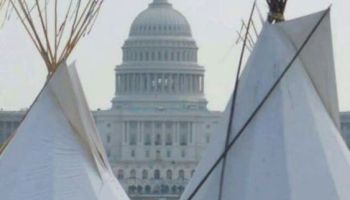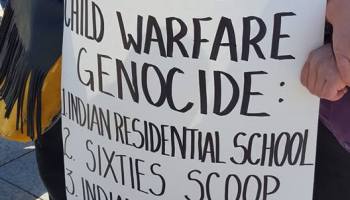(2015) The following story is KEY to any discussion about Native Americans in news rooms and across Indian County. We need good stories and websites and newspapers who give accurate reporting and reflect the truth.All of our issues of Native News since 1992, are now available online thanks to the Mansfield Library. Check them out here! https://t.co/lzQg0wOWen— Native News MT (@NativeNewsMT) April 9, 2019
“We’re not necessarily focusing on the shadows and the sadness,” says Jason Begay, a Navajo who grew up on a reservation and runs the Native News Project, “but on how people are persevering.”Police kill Native Americans at almost the same rate as African-Americans, according to the Centers for Disease Control and Prevention (CDC). Between 1999 and 2013, an average of .29 per 100,000 Native Americans were killed by police, compared to .3 per 100,000 for blacks and .11 per 100,000 for whites. “America should be aware of this,” argues Chase Iron Eyes, a lawyer and a leader of the Lakota People’s Law Project, which runs a publicity campaign called Native Lives Matter. But for the most part, America is not aware of this.
That may be changing, albeit slowly, as both mainstream media and Native American-run digital outlets begin to cover American Indian issues more robustly.
Tristan Ahtone, a member of the Kiowa tribe of Oklahoma who often reported for Al Jazeera America, won a following among Native Americans and others for writing about new topics, such as how one tribe is invoking treaty rights to stop another oil pipeline, the rethinking of the militant American Indian Movement that grew up alongside the Black Panthers in the 1960s, and an international indigenous basketball tournament. His approach: “Stop looking at Indian Country as a foreign place with foreign people doing foreign things. It keeps us apart from each other, and reinforces the idea that these people are different, that they’re victims, that they’re helpless. They get covered when there’s doom, gloom, or there’s blood. The cumulative effect is that you’ve got communities that are isolated from the rest of the country and generally distrustful of journalists, and that just creates a continuing cycle.”
Ahtone is one of only a handful of Native American journalists. There are 118 self-identified Indian journalists working at U.S. daily newspapers, according to 2015 data from the American Society of News Editors. That’s .36 percent of all U.S. newsroom employees. Native American activists say there need to be more newsroom internships and training programs for aspiring Native American journalists.
And I’ll leave you with this quote about diversity in writing and publishing:READ ON…
“You will be tokenized. Even when you get to write about your own experience of being a minority in America—you know, even that can be turned against you. Are you going to be used later on as leverage against an accusation of racism? Will you then be seen as a collaborator? In most cases the answer is yes….
“Hiring is a crucial step, but it is reformist. It’s not going to really fix anything, just sand off the rough edges, right? Because there is far more concern about appearing racist rather than not doing racist things. It’s not just a publishing thing. What else can I say but dismantle capitalism? And I don’t know that anything radical enough to do that wouldn’t hurt a lot of the people that we are trying to save. Barring world historical change, I don’t see really anything happening but a new paint job. It is systemic racism for a reason, it’s so essentially wound up with the system upon which everything is built. You can ameliorate it. You can palliate it. But you can’t cure it. This is what I sound like when I’m optimistic.” —Tony Tulathimutte, novelist, Private Citizens
My writing on this blog (and publishing new books here) is my humble attempt to broaden perspectives about Indigenous People/American Indians/First Nations… Thank you all for reading and following this blog! You matter to me! xoxoxo Blog Editor Trace Hentz

























No comments:
Post a Comment
Please: Share your reaction, your thoughts, and your opinions. Be passionate, be unapologetic. Offensive remarks will not be published. We are getting more and more spam. Comments will be monitored.
Use the comment form at the bottom of this website which is private and sent direct to Trace.